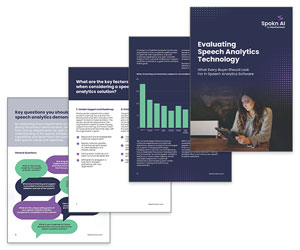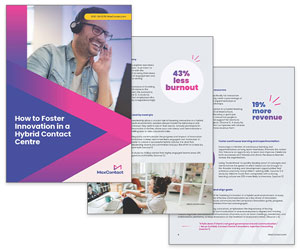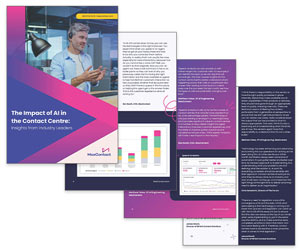Not feeling as sharp as you were back in early 2020? You’re not alone. ‘Pandemic brain’ is affecting our productivity and ability to concentrate at work, and it doesn’t seem to be going away.
Just last week we saw dating app Bumble close their office for a week to help staff deal with burnout, and online retail giant ASOS have a mandatory ‘Wellbeing Day’ where they gifted staff a paid day off for their efforts throughout the pandemic.
So whether you’re a business leader or an employee, here’s how you can tackle the pandemic brain phenomenon…
Pandemic Brain? What’s That?
Over the past 18 months, our brains have been through a LOT.
We’ve faced a global crisis, lockdowns, tiers, working from home, feeling like we should be in the office, and multi-tasked kids, school and work. To a cut a long story – that doesn’t seem to have an end – short, it’s caused an enormous amount of stress and anxiety for many.
Unfortunately for us, research conducted by Yale University shows that chronic stress has been found to shrink the size of your prefrontal cortex, the part of your brain responsible for memory, focus and learning.
So, if you feel like you’ve been forgetting things more easily than you were pre-pandemic, you may be experiencing a case of brain fog, aka ‘pandemic brain’, and well, you are not alone…
A scary 53% of US women feel burnt out. Meanwhile, 64% of new employees (less than a year in the role), 61% of front-line workers and 67% of single workers are struggling, according to a recent Microsoft study. It can be difficult to manage both life at home and at work.
Despite restrictions easing and life returning to some warped sense of normality, it can often still feel like we’re a long way from returning to how things were pre-2020.
With new Coronavirus strains developing and the lifting of restrictions being further delayed, we’re still being exposed to “microdoses of unpredictable stress all the time” says Tina Franklin, a neuroscientist at the Georgia Institute of Technology, USA.
“It’s going to take some time to recover from it”, says Mike Yassa, the director of the UC Irvine Centre for the Neurobiology of Learning and Memory and the UCI Brain Initiative. “It” being the subtle but frustrating mental deterioration many of us have suffered over the course of the pandemic.
Will I Feel This Way Forever?
To put a positive spin on memory loss, luckily for us, humans tend to forget a good deal of new information after the first 24 hours or so.
This varies from person to person, of course, but the pandemic has taught many of us new skills and made others redundant – such as how to catch a train to work, the art of socialising in large groups and even the old classic, shaking hands (remember that?).
Because of this, once we do return to a sense of normality, we should bounce back pretty easily.
Psychologist Emily Green suggests there are ways that we can help manage brain fog and what to do if you feel like it’s hindering your performance at work.
“If you have a good working relationship with your boss…being up-front and honest is your best bet,” and you should think about what would help you at work.
If you don’t feel comfortable being that open, then perhaps look at these tips to try and help you manage that brain fog:
Create Free Time
Book regular days off and stick to them. Just because the sun’s not shining or your plans have changed doesn’t mean that you don’t need time off. You need to give yourself time regularly, even if you feel like you don’t need it.
With every day that passes, we’re experiencing more chats, longer meetings (the average has gone from 35 mins last March, to 45 mins now) and constant interruption. In a day with fewer boundaries – you need more days with them.
Realign Your Priorities
If you’re worried about how ‘brain fog’ may be impacting you at work, take steps to understand your objectives and priorities. Relate them to your day-to-day work and develop a prioritised to-do list.
If you do this each day, it’ll help you remain structured, but be realistic and set yourself deadlines – if you’ve not got them already. If you’ve noticed individuals or teams struggling – do this exercise with them and have an open conversation.
Do Your Daily Commute
You already know exercise is good for you, but it can be hard to find motivation when our minds are foggy. Rather than going all-in and launching straight into running 10k marathons, take baby steps and start with regular walks throughout the day.
And yes, we know, we all did a lot of walking throughout 2020 – it was about all we could do! But it is proven that the endorphins produced from exercise help you to concentrate and feel mentally sharp for tasks at hand, so it’s worth keeping this habit up.
Instead of the commute many people are working – don’t! Take the time that you’d usually spend on the train, in the car and venture out of the house for a walk.
It gives your mind time to prepare for the day, helping you mentally prioritise what you’ve got coming up instead of jumping straight to it.
Stick to a Routine
Working from home has made it all too easy to work day and night with no strict schedules. With reduced social activities in our calendars, and only Netflix to spend time with of an evening, the lines have blurred between work and home life.
Keeping regular hours can be tough but can help you to have a more productive workday.
Create a Distraction-Free Environment
Dedicate some time each day to focus on tasks at hand by blocking out time in your calendar. If possible, turn off notifications on all of your devices and listen to a playlist that calms you down, giving you the ability to truly concentrate.
One of the common signs of ‘pandemic brain’ is succumbing to distraction and feeling overwhelmed, so by removing any possible interruptions, you’re more likely to be able to focus.
Find Your Calm
Mindfulness and meditation have been linked to an increase in concentration power, which leads to a boost in productivity.
Just 10 minutes of meditation every morning can help you regain focus. There are various types of meditation, so try out the different techniques to find one that suits you.
Things Really Are Getting Better
As Benjamin Disraeli once said – “There is no education like adversity” – and boy have we faced adversity of late! Now’s the time to learn, reflect and improve.
It’s been a tough 18 months and if your brain isn’t quite functioning in the same way it used to, is it really that surprising when you think about all that we’ve been through as a nation, and continue to go through?
Focus on the positives, try out the tips we’ve shared to retrain your brain and appreciate the small things in life, and if you’re a leader, team manager, supervisor, colleague or friend, be sensitive to ‘brain fog’ moments, give extra time for people to digest information before making decisions and be really clear on what you need from people.
Finally, show your appreciation, as that never goes unnoticed – no matter how foggy our brains.
For more information about MaxContact - visit the MaxContact Website
Call Centre Helper is not responsible for the content of these guest blog posts. The opinions expressed in this article are those of the author, and do not necessarily reflect those of Call Centre Helper.
Author: MaxContact
Published On: 30th Jun 2021
Read more about - Guest Blogs, MaxContact






 MaxContact is customer engagement software that goes above and beyond to build smarter customer experiences. Our platform is packed with powerful features, accessible for businesses large and small, and ensures organisations can operate compliantly.
MaxContact is customer engagement software that goes above and beyond to build smarter customer experiences. Our platform is packed with powerful features, accessible for businesses large and small, and ensures organisations can operate compliantly. 






























